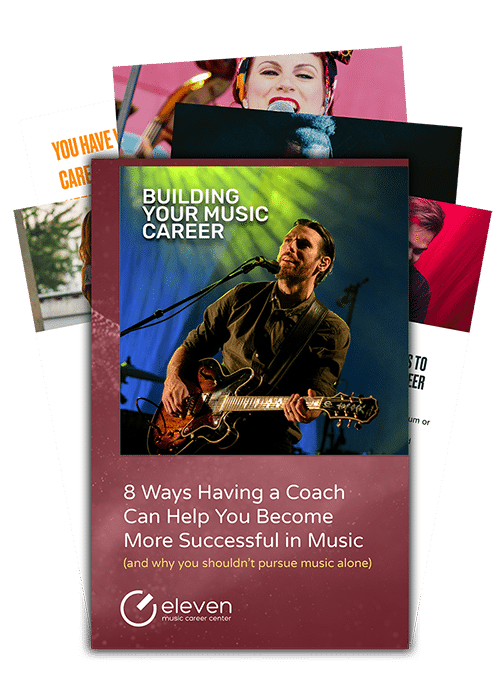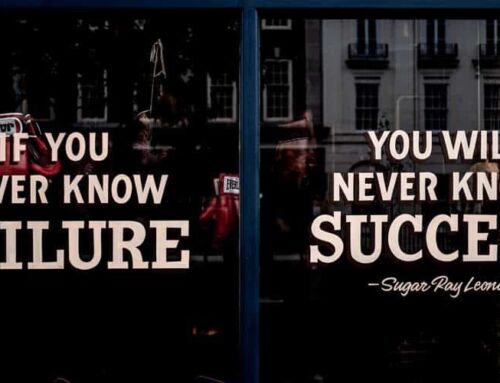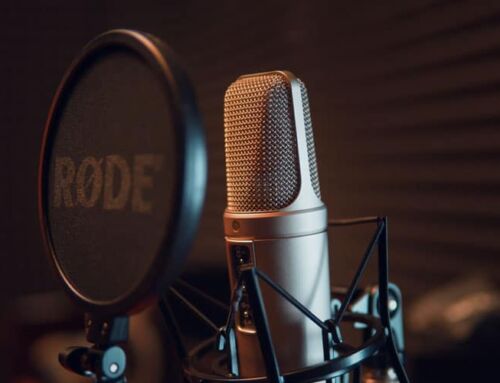Did you know that if music creators develop their business skills they are more likely to succeed in music and be happy? But as we share in today’s article, it’s hard to engage in continuous learning to improve your music career, practice your instrument, collaborate with other musicians, or really do anything in music without your ears. Protect those musician ears of yours!
Musician Ears that Go on Tour Need Protecting: Steve’s Story
I know you don’t want to hear it, but it’s vital that you protect one of your greatest assets.
Imagine life with partial hearing loss. How would you cope? Could you still perform? Could you still record?
I played keyboards in my first band in college, and I remember doing gigs where it was so loud that I felt like my entire head was vibrating. I didn’t care at the time, but it was a dangerous sound level for an extended period of time which could have done some permanent damage to my hearing.
In the following years, I played in several other bands that performed and even rehearsed too loudly. It wasn’t until I moved to Nashville and started playing with bands there that I realized how quietly everyone in the group can play. You can hear much more detail at lower levels, and it vastly improves sonic fatigue.
Once your ears are damaged by high sound pressure levels, it’s potentially permanent. If you suspect hearing loss, or if you suspect that you have tinnitus, get evaluated by a hearing professional.
Your career literally depends on it.
Musician Ears that Play the Local Bar Scene Need Protecting: Matt’s Story
We’ve all done it. Ignore the temporary ringing in our ears night after night assuming it’s just that: temporary.
But the longer we ignore it, the worse those rings get. The the worse they get, the better the chance they will hang around longer and longer.
Take it from me. As a drummer of 25+ years, I’ve mixed a regular recipe of my drum kit along with the floor and tower monitors blaring the rest of the band in my ear so I can hear everything going on.
After a couple decades of that, I regret those decisions.
I still have a light buzzing in my ear, but I only really notice it at night when the house is quiet. My solution to that is sleeping with a white noise app, which fixes the ringing AND the random noises my kids will occasionally make in the middle of the night.
All kidding aside, I may have found a solution to the issue, but looking back I wish it was never an issue, and it was easily preventable.
Protect those ears!
Musician Ears that Practice in the Garage Need Protecting: Nick’s Story
Imagine you’re in a garage for band practice. There’s a bass, drums, guitars, vocals all blaring on volume level, 11.
Remember, we’re in a garage so there’s a concrete floor, tall open ceiling, it’s a rectangle box of a room — the sound is just bouncing all around with nowhere to go. There are no sound absorbing panels, no carpeting, or insulation to help absorb the sound. The din is just slapping back and forth between the room’s many hard, flat surfaces and back to our unprotected ears.
This was my early experience being in a band in high school. We would often practice in our singer’s garage, or in an unfinished basement (which is not much better on the ears). We never used ear protection, which in hindsight was probably a poor choice. We also didn’t know what we were doing in terms of being smart enough to think that we might want to protect our ears from too much noise.
Part of the issue was that we didn’t set ourselves up to rehearse or even perform live in a way that took the health of our ears into consideration. We didn’t have in-ear monitors or even floor monitors, we all just plugged into various guitar amplifiers, usually behind us so we could hear ourselves and push sound out to an audience. That meant our ears were taking the brunt of the damaging noise.
Fast forward, now that I’m more experienced if I’m in a band rehearsal setting, the drums are muffled with blankets or towels on the drum heads, amps are turned down enough to hear what’s going on but not cause bleeding of the ears, band members are positioned out of the way of their amps and either wear headphones as monitors of the band’s sound mix, or floor monitors are used to provide a personal, tolerable volume level reference of the band’s sound mix.
These days when I perform live I take my ears into consideration too. If I’m in a band setting, I typically have an audience facing PA that is pushing out the loudest sound to the crowd. The band members are positioned behind those PA speakers so we don’t hear much of them and we each have floor monitor speakers set at a reasonable volume on stage. Amps are on stage behind us at reasonable volume levels then they’re mic’d and run through the mixing board where volume levels can be controlled for the onstage monitors and what the crowd-facing PA speakers are pumping out. That way, we can have better control over the volume levels for just about everyone we need to consider, and that saves our ears at the end of the night, considerably.
Today’s Action: Protect Your Ears with Ear Plugs
There’s a quick and easy way to protect yourself from the dangers of listening to music too loud and too long. You don’t need to spend a lot of money, either. Just go to your local hardware store and pick up a large container of foam earplugs.
Keep several pair in your vehicle glove compartment, keep some in your instrument case and keep the entire container in your studio.
Bring extra pairs to a show and offer it to other band members. Don’t force it on them, but your offer just might get them thinking about the dangers of extremely loud music.

Free Guide: 8 Ways Having a Coach Can Help You Become More Successful in Music
This guide shares eight ways hiring a coach can make you a more successful, profitable, and full-time music creator.
When you understand how a music career coach can get you farther, you’ll be ahead of other music creators growing their music career.
Free Guide: 8 Ways Having a Coach Can Help You Become More Successful in Music
This guide shares eight ways hiring a coach can make you a more successful, profitable, and full-time music creator.
When you understand how a music career coach can get you farther, faster, you’ll be ahead of other music creators attempting to grow their music career.



